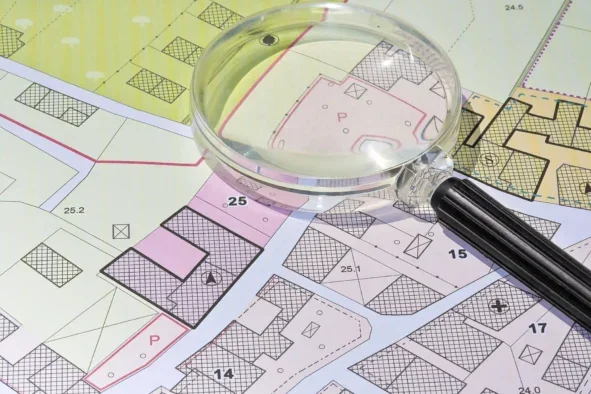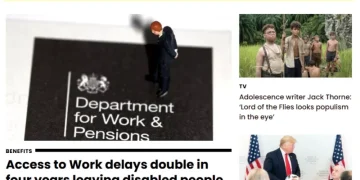
A Land Registry decision to more than double the cost of requesting information has been decried as a “tax on proper journalism”.
The price of making an electronic inspection of the Land Registry rose from £3 to £7 on Monday, which editors have told Press Gazette could add hundreds of pounds to the cost of a single investigation. This would hit small newsrooms particularly hard, they said.
The Land Registry is a government-run record of who owns property in England and Wales.
Jim Waterson, the editor of recently-launched local outlet London Centric, told Press Gazette the price rise “won’t mean much for homebuyers, solicitors, or property developers. They tend to purchase such records on a one-off basis or can easily absorb the costs.
“For investigative journalists working on tiny budgets due to the state of the industry, the 133% increase really hits hard.
“Last week I bought 43 different land registry entries for an investigation into the true owners of London’s Harry Potter shops, at a cost of £129. If I bought the same records this week it would cost me £301.
“That’s just another tax on doing proper journalism — and an incentive to do more lazy clickbait instead.”
Joshi Herrmann, the editor of local news start-up Mill Media, told Press Gazette he was “so angry” about the changes.
“The thing about doing open-source investigations involving Land Registry documents, Companies House documents… is you really have to pull dozens of documents before you find the bit you’re looking for. You literally have to get 20 Land Registry documents before you spot the pattern you’re looking for.”
Herrmann estimated that for one Mill Media investigation into property “flipping” in Manchester, which was highly commended last night at the British Journalism Awards, his team pulled around 120 Land Registry documents at a cost of £360 — which would today cost £840.
Although large newsrooms may be able to afford these increases, he said, it posed a problem for smaller, newer investigative publications.
“If they’re doubling the cost, there’s an enormous extra cost for doing investigative journalism.”
Asked what he thought of the price changes Charles Baker, the editor of cultural and investigative magazine The Fence, said: “Annoying!”
Why did the Land Registry increase the cost of getting ownership information?
Announcing the price rise in September, the Land Registry said the change reflected “the increased costs of running and improving HM Land Registry’s services, as well as plans to increase digitalisation and transformation of data.
“However, even with this increase, the majority of customers will still be paying less than they were in 1992.”
In March the body launched a call for evidence as part of a review into how it sets it fees, but the results do not yet appear to have been released.
A 2016 proposal to privatise the Land Registry prompted alarm among journalists, with the legal, policy and regulatory affairs advisor at the News Media Association writing in Press Gazette at the time that it would “inevitably result in this important information becoming shrouded in a veil of secrecy”. The plans were ultimately abandoned.
Waterson today called on the Government to change Land Registry charges to support investigative journalism.
“If the Government wants to support journalists doing proper investigations into dodgy landlords and tax-avoiding businesses then it should tell the Land Registry to impose a monthly price cap for journalists,” he said.
“It’s public information held by a public institution — why are we being penalised for wanting to tell the public about it?”
Herrmann went further, saying “it feels like the kind of thing that should be free… that should be subsidised by the state”.
In an open society, he said, “where we want to have tough investigative journalism, we want to have rigorous checks and balances on companies and wealthy individuals, we need to have open access to public documents”.
Contacted for comment, a spokesperson for HM Land Registry said: “While, for the majority of customers, this fee increase is a relatively small element of the costs of buying/selling property, we acknowledge the impact this has on others.
“We are in the process of reviewing the structure of our whole fees and charging model, including how data is accessed by all customers. Proposed changes will be subject to full public consultation and we encourage everyone to contribute their views when the consultation is launched.”
The post Land Registry price rise dubbed ‘tax on proper journalism’ appeared first on Press Gazette.





























